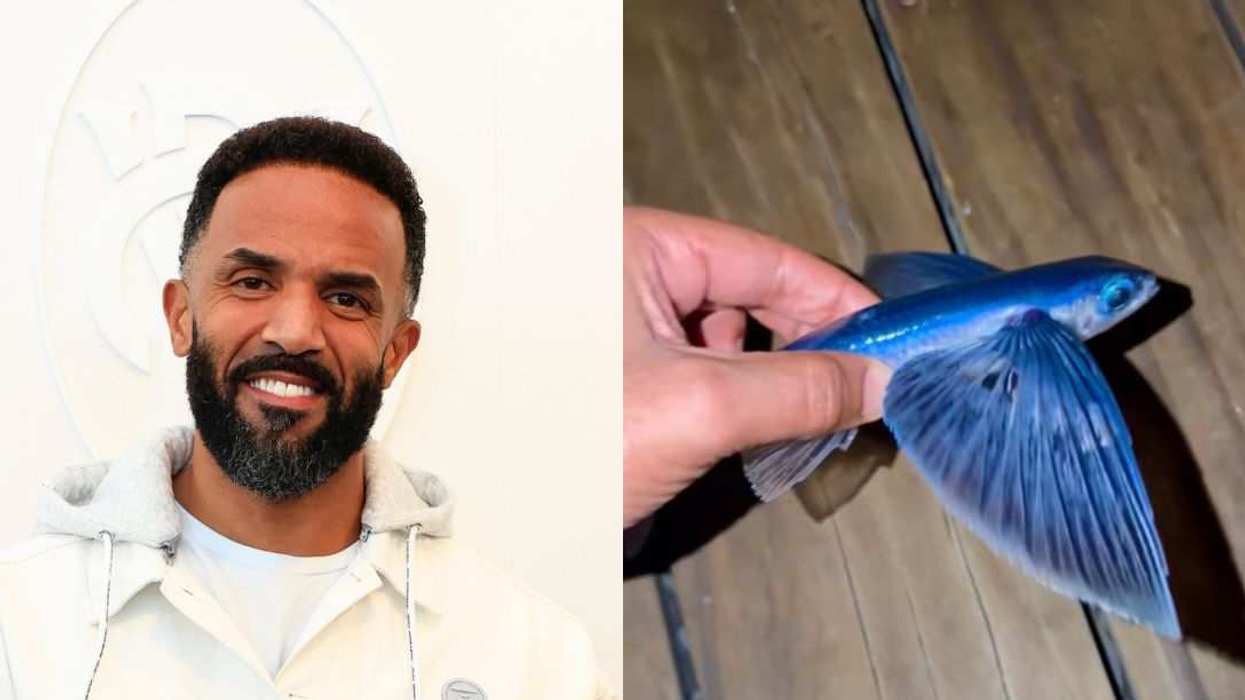A keen runner who was plagued by 'anxiety' for a decade was horrified to discover that her symptoms were actually being caused by a golf-ball sized tumor that had been silently growing in her brain.
When administrator Emily Bailey, 34, started experiencing sporadic dizziness and fatigue in her twenties, she assumed it was anxiety—as did her doctor, who prescribed medication to ease it.
But, out jogging with her local running group in November 2019, she suddenly lost her balance, crashing into a garden wall—leading to further investigations which identified a 4cm tumor, pressing on the nerve connecting her inner ear to her brain.

Emily, of Oundle, Northamptonshire, said:
“When I first lost my balance, I was out jogging and other members of my running group had to help me up and guide me to the finish line. I was walking as if I was drunk—it was so bizarre."
Initially told by her doctor that she probably had ear problems, it was a total shock for Emily when, after her balance deteriorated to the point where she needed to be supported by someone when she went out, she had an MRI scan at a private hospital in March and discovered she had a brain tumor.
Emily, who is single, said:
“The type of tumor I had was a slow-growing one and doctors told me I'd probably had it for about 10 to 12 years."

She continued:
“I was gobsmacked. The consultant said that, for all that time, I hadn't had anxiety—the tumor had been causing my symptoms."
“As terrifying as my diagnosis was, in a way, it almost felt like a relief. My symptoms hadn't been all in my head and there was something that could be done about them."
Straight after her first dizzy spell in November 2019, Emily had assumed she had caught a winter virus and, after abstaining for a week, she tried to go for another run—only for her balance to fail her again.
Concerned, she saw her GP and had a blood test and an electrocardiogram to monitor the rhythm of her heart—neither of which were abnormal.
With no obvious signs of anything more sinister, doctors suspected she had a common condition called benign paroxysmal positional vertigo (BPPV), which occurs when the calcium carbonate crystals usually found in the inner ear, which help with balance, become dislodged.
She tried repositioning exercises, which usually have a high success rate, according to the NHS, as well as some home remedies, like using an ear candle to remove wax—but to no avail.

Making two further visits to the doctor in early 2020, when her balance became worse and her hearing faded in her left ear, she was told she simply had blocked ears, but decided to take further action.
“I had a couple of other strange symptoms too, like tinnitus—when you hear a near-constant ringing—when I lay down."
“I also began to lose my taste and the left side of my tongue almost felt tingly."

In March, Emily used her private health insurance to have an MRI scan at Peterborough's Fitzwilliam Hospital where, to her horror, she was told she had a tumor the size of a golf ball on the left side of her brain, pressing against the nerves controlling hearing and balance.
Two days later, she was officially diagnosed with an acoustic neuroma—a benign tumor that grows slowly over the course of many years—affecting around two in 100,000 people in the UK annually, according to the charity British Acoustic Neuroma Association (BANA).
Symptoms may not be obvious at first, but can include hearing loss on one side, tinnitus, vertigo, persistent headaches, blurred or double vision, difficulty swallowing, facial numbness and problems with limb co-ordination.
“By that point, I'd had the dizziness for four months, so I was relieved to finally have an answer."
“It was shocking to be told that the anxiety—something that had been a part of my life for a decade—wasn't anxiety at all, but rather the symptoms of a brain tumor I hadn't even known was there."
Because of the precarious position of the tumor, surgery was the only option—a prospect Emily found “terrifying."

She added:
“I got it into my head that I was going to be put to sleep by doctors and would never wake up."
At the end of March, Emily went to Cambridge's Addenbrookes Hospital for an operation to remove the tumor, but could not have any loved ones in the room with her, because of the pandemic.
Instead, her family waited with bated breath outside, as surgeons performed a translabyrinth craniotomy—slicing into her scalp from behind her left ear, before removing pieces of bone, so that they could access the growth.

“They said the operation would take about eight hours, but it ended up taking 12, as it was more complicated than they'd thought. My poor family were beside themselves thinking something had gone wrong."
During surgery, medics took some fat from Emily's thigh to seal up the wound, in a bid to prevent the cerebrospinal fluid surrounding her brain from leaking.
Coming to, she was told that the majority of the tumor had been successfully removed, save for a small portion that was too close to her facial nerve to access.
What is an acoustic neuroma?
- A benign tumor in brain that usually grows slowly over many years and does not spread to other parts of the body.
- They grow on the nerve used for hearing and balance, which can cause problems such as hearing loss and unsteadiness.
- They tend to affect adults aged 30 to 60 and usually have no obvious cause.
- Large acoustic neuromas can be serious because they can sometimes cause a life-threatening build-up of fluid in the brain.
- An acoustic neuroma can occasionally return after treatment. This is thought to happen to around 1 in every 20 people who have had surgical removal.
For around two weeks, as she recovered, the left side of her face was temporarily paralyzed and she could not close her eye, meaning she had to wear a patch.
Thankfully, that soon wore off, but as surgeons had to slice through some of her nerves, she has been left with permanent hearing loss on her left side and has also been doing physiotherapy exercises to recalibrate her balance.
And, two months on, she is feeling better than ever, saying:
“I have started running again. I'm even going to do Brighton Marathon next year to raise money for BANA. Doing all of this during a nationwide lockdown has been quite surreal."

She added:
“At first, as I was home isolating and recovering in silence, the hearing loss didn't bother me, but now I can go out a little more, I'm getting a feel for what it will actually be like, so I'm hoping to get a hearing aid."
One massive positive change has been that Emily is finally rid of the anxiety that bothered her for a decade and is gradually weaning herself off her anti-depressant medication.
She also needs regular MRI scans to monitor the remaining tumor for regrowth, which doctors believe is unlikely to happen. Radiotherapy may be an option for her in the future, but for now, she is feeling perfectly fine.

Keen to raise awareness of acoustic neuromas and make sure people take notice of unusual changes in their bodies, Emily said:
“When I look back, it feels very strange—almost as if the past few months didn't really happen."
“I am so grateful to all the medical staff that have helped me. They are truly amazing and I can't thank them enough. It's nobody's fault that my tumor wasn't found sooner."
"They are rare, so it's understandable that it's not the first conclusion you'd jump to."
“But I want my story to encourage other people to listen to their bodies, push for a referral when they know something isn't right and, most importantly, stay positive."














 @TweetforAnnaNAFO/X
@TweetforAnnaNAFO/X


 Steve Urkel Oops GIF
Steve Urkel Oops GIF  Moon Walk Dance GIF
Moon Walk Dance GIF  The Office Monday GIF by 20th Century Fox Home Entertainment
The Office Monday GIF by 20th Century Fox Home Entertainment